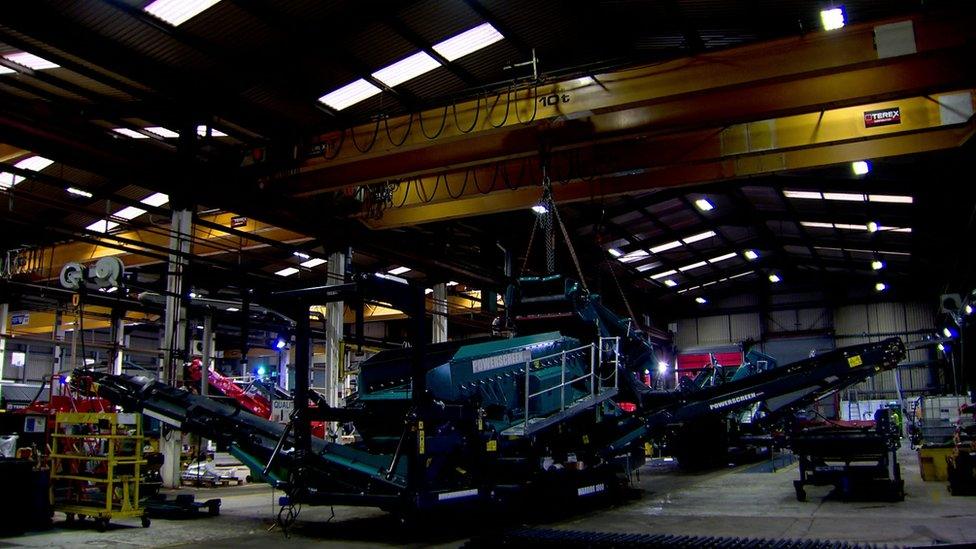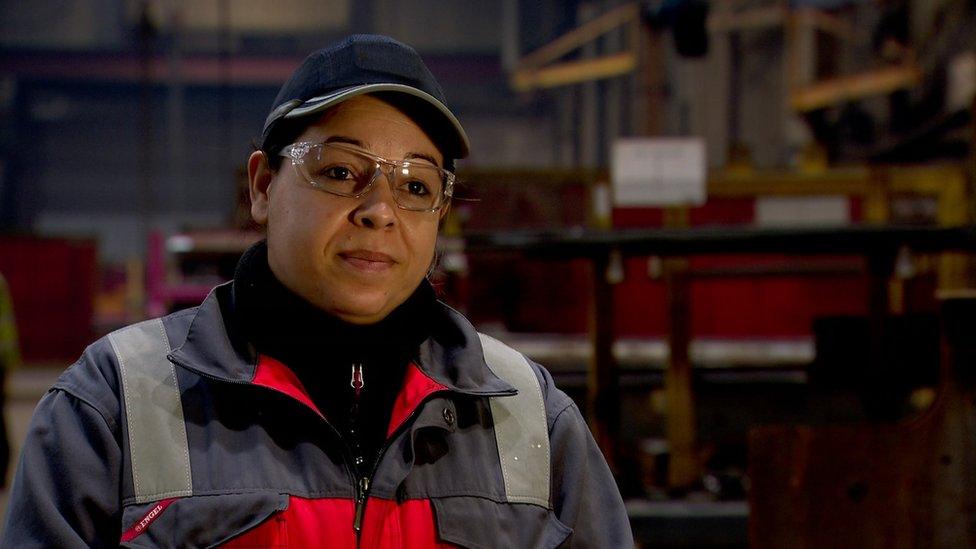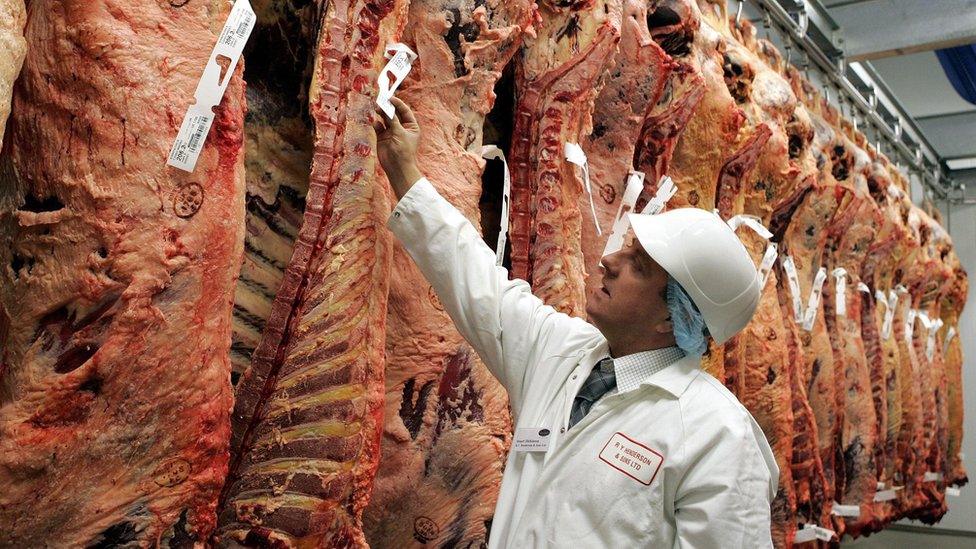Brexit: NI 'may lose industry over migrant workers shortage'
- Published

Businesses in Northern Ireland are struggling to recruit enough staff and a failure to tackle the problem could see some industries leave, Manufacturing NI has warned.
It is particularly noticeable in Dungannon, in County Tyrone, where many businesses rely on migrant labour.
The population of the Mid Ulster council region is expected to grow to 165,000 by the end of the decade.
Despite that growth, it appears there are not enough people to fill the jobs.
In recent years, migrants made up more than 10% of the town's population.
However, since 2016, 18,000 migrants have left Northern Ireland.
The town is home to hundreds of manufacturing, engineering, and food processing businesses.
Mallaghan Engineering produces equipment for the aviation sector, which it exports to more than 100 countries across the globe.
HR manager Sinead Gaynor told BBC NI's The View programme the company is struggling to recruit for a range of positions.
"We currently employ about 250 staff on site. Our vacancies that we have account for about 10% of our workforce," she said.

The company has recently introduced a £1,000 bonus for staff who refer friends to the business, but that's having limited success.
"We're in situation where we're taking on two new employees and we're potentially losing three. So we're just very much at a standstill at the moment," she said.
Short of 150 people
Over 40% of the world's mobile crushing and screening equipment is produced in the Mid Ulster region.
Edge Innovate and Terex employ hundreds at their neighbouring sites - but both companies need more workers, like Patricia Morais, who moved to Dungannon 15 years ago.
Originally from Portugal, she recently started working in local engineering business Terex.

Patricia Morais moved to Dungannon 15 years ago
"I don't like the weather to be honest - but the work is good. I just like here," she told BBC NI's The View programme.
"I got used to it in the 15 years that I've been here, so it's like a second home for me,"
Terex employs more than 600 at its sites in Dungannon.
General manager Sean Loughran said due to increased global demand for their products his company currently has 150 vacant positions.
Darragh Cullen, from Edge Innovate, is also looking for more staff.
He has introduced a four-day week in an effort to retain his current workforce and entice new staff.
"In an ideal world, I would like to run this factory 24 hours a day seven days a week. If I'm honest, I'm probably short of about 150 people at present."
Engineering isn't the only sector reporting labour shortages.
Dungannon is home to some of the larger food factories including Moy Park, Dunbia and Linden Foods.
Conall Donnelly, from the NI Meat Exporters Association, estimates that up to 15% of jobs in the meat processing factories are vacant.
"That's substantial in terms of golden salaries that could have been paid and contributing to the economy," he said.
'Much more jobs and far fewer people'
Manufacturing NI's Stephen Kelly said this is replicated in across industry in Northern Ireland.
"There's a very good reason for it. Since the EU referendum we have lost 18,000 EU workers. They have returned home.
"At the same time we have 25,000 more people in employment. We have much more jobs and far fewer people," he told The View.
Allow X content?
This article contains content provided by X. We ask for your permission before anything is loaded, as they may be using cookies and other technologies. You may want to read X’s cookie policy, external and privacy policy, external before accepting. To view this content choose ‘accept and continue’.
"We have already seen that some of our manufacturers have chosen to invest in the Republic of Ireland, probably at the expense of additional investments in NI.
"We need to ensure that this is an attractive place for people to set up a business, to establish a business, and to sustain a business. At the core of all of that is labour."
'We need action right now'
Former careers teacher Maria Curran is now the project director for MEGA - a group set up to address the shortage of skills in Mid Ulster.
"Our young people are being encouraged to stay on school post-16. They're encouraged to do go on and do their A-levels and the natural progression is into university," she said.
"We need our young people at 16. We need them into apprenticeships," she added.
"Our order books are full. We can't we're actually turning down work at the moment because we can't get people. We need people right now and we need action right now."
You can watch the programme, BBC Northern Ireland's The View on the iPlayer.
Related topics
- Published20 October 2021

